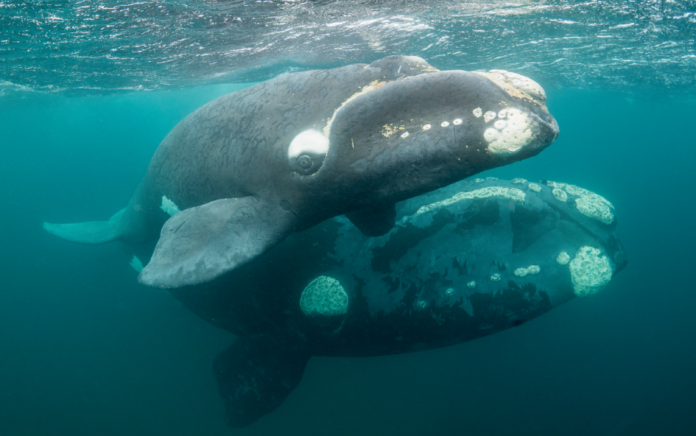The Virginia Mercury article (May 19, 2025) argues that President Donald Trump’s executive order halting offshore wind project approvals, permits, and funding is detrimental to Virginia’s economy, particularly the Coastal Virginia Offshore Wind (CVOW) project, and criticizes Republican leaders like Governor Glenn Youngkin and Attorney General Jason Miyares for not opposing it. While the article highlights the economic potential of offshore wind—job creation, supply chain development, and clean energy—it glosses over a significant concern: the environmental impact of these projects on marine life, notably the alarming increase in whale strandings along the East Coast.
The article frames Trump’s policy as an attack on Virginia’s economic interests, but it fails to acknowledge that the pause on offshore wind development aligns with growing evidence suggesting these projects may harm marine ecosystems. Offshore wind farms involve intense underwater noise from construction activities like pile driving, which can disrupt marine mammals’ navigation, communication, and feeding behaviors. Studies, such as those from the National Oceanic and Atmospheric Administration (NOAA), indicate that anthropogenic noise can cause behavioral changes in whales, potentially leading to strandings. Since 2016, NOAA has documented an “unusual mortality event” for humpback and North Atlantic right whales, with over 200 strandings reported along the Atlantic coast by 2023. While causation is not fully established, the correlation between increased offshore wind activity and these incidents warrants caution.
Republican leaders, by not joining the lawsuit from 17 states and D.C. challenging Trump’s order, may be prioritizing environmental stewardship over short-term economic gains. The article notes Virginia’s long-standing bipartisan support for offshore wind, including the CVOW project, which is expected to power 660,000 homes by 2026. However, this support predates recent data on marine impacts. Governor Youngkin’s silence and Miyares’ absence from the lawsuit could reflect a prudent approach, awaiting further research into whether offshore wind contributes to whale deaths. This stance aligns with the precautionary principle, which urges caution when activities risk significant environmental harm.
The article also overlooks measures already in place to protect marine life during CVOW construction, such as trained observers and “bubble curtains” to reduce underwater noise. Yet, these mitigations may not fully address the cumulative impact of multiple wind farms planned along the East Coast, which could amplify stress on whale populations already threatened by ship strikes and fishing gear entanglements. Trump’s order, while disruptive to the wind industry, provides a window to reassess these risks and ensure Virginia’s renewable energy goals do not come at the expense of its coastal ecosystems.
Economic concerns raised in the article—job losses and weakened supply chains—are valid but must be weighed against long-term environmental costs. Virginia’s tourism, fishing, and aquaculture industries, which depend on healthy marine ecosystems, could suffer if whale populations decline further. Republican leaders’ restraint may signal a commitment to balancing economic growth with environmental protection, ensuring Virginia’s leadership in clean energy doesn’t sacrifice its natural heritage.
Rather than framing Trump’s policy as an attack, it’s worth considering it a call for rigorous scrutiny. Youngkin and Miyares could advocate for federal studies to clarify the link between offshore wind and whale strandings, positioning Virginia as a leader in both renewable energy and marine conservation. This approach would better serve Virginians than joining a lawsuit that prioritizes industry over ecosystems.
NEWSLETTER SIGNUP
Subscribe to our newsletter! Get updates on all the latest news in Virginia.



